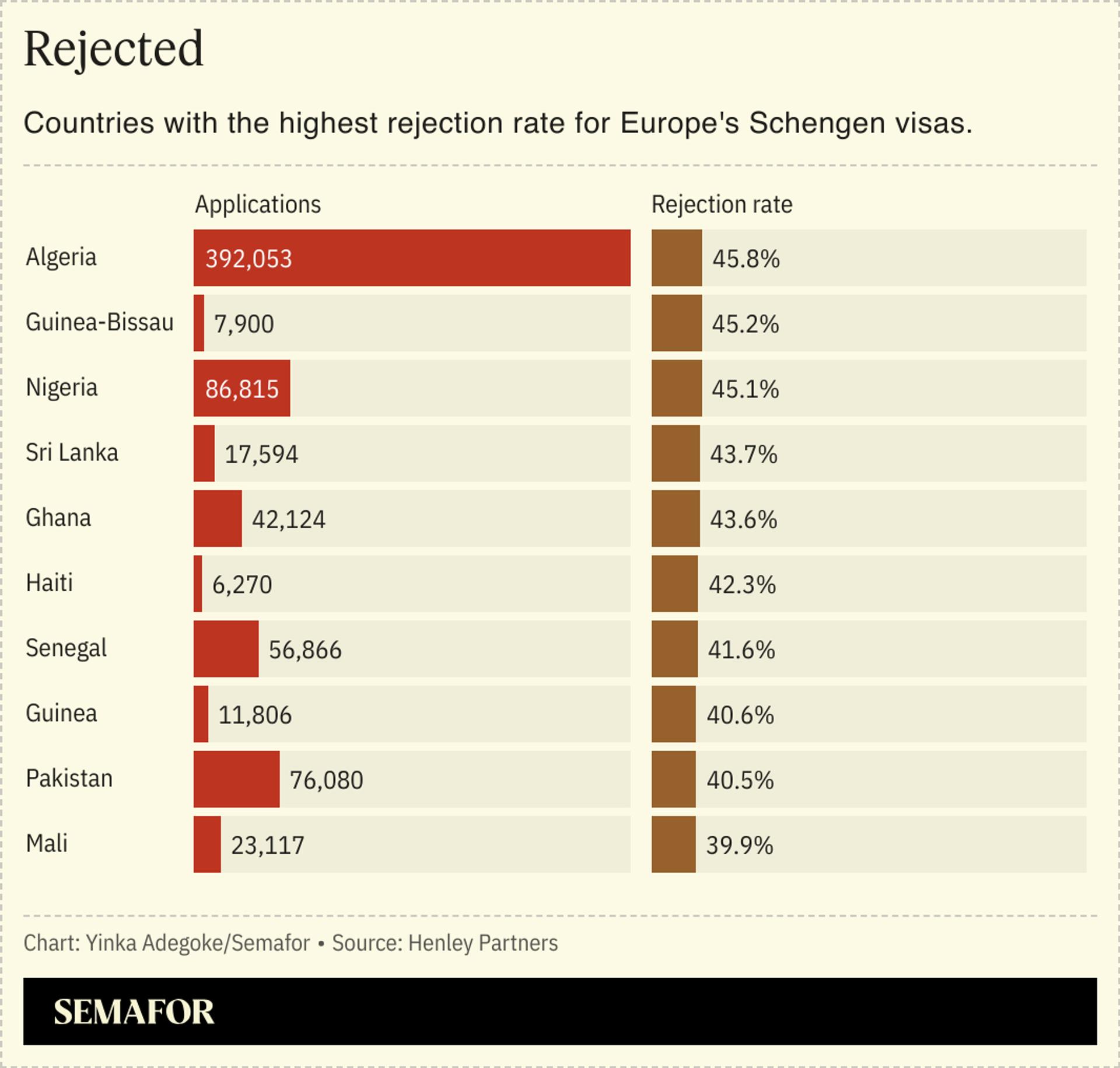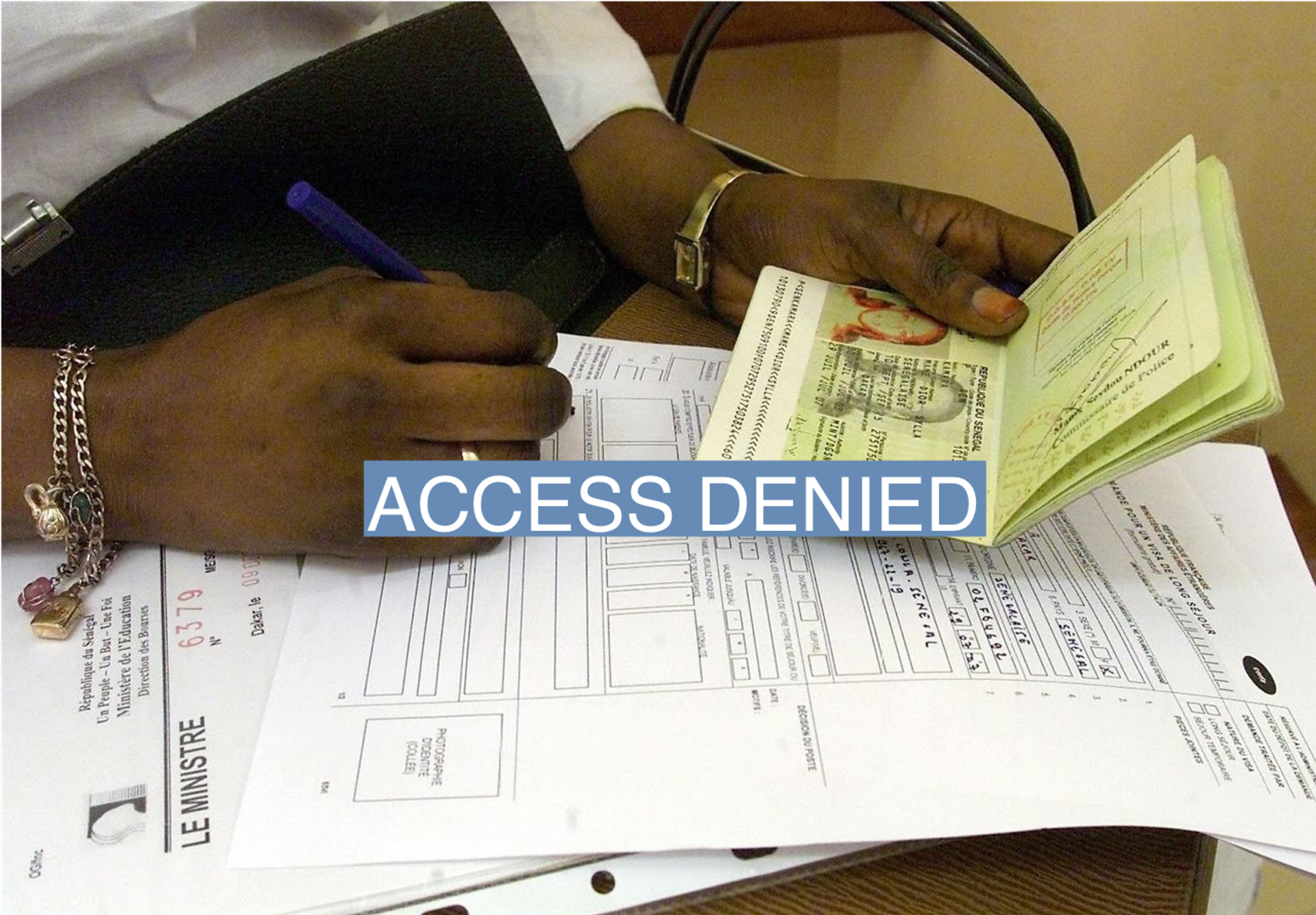The News
Nearly a third of Africans applying for a visa to Europe’s Schengen area are rejected — the highest refusal rate of any region, according to a new report by migration consultancy firm Henley & Partners. That’s despite the continent submitting the lowest number of applications per capita.
Africa’s applicants had a 30% visa refusal rate. “The rejection rates for African applicants for Schengen visas are generally 10% higher than the global average, three times higher than the highest rejection rate,” Mehari Taddele Maru, professor at the European University Institute, observed in the report.
Algeria saw the highest rate of refusals, with 46% of its more than 390,000 Schengen visa applications in 2022 rejected. Nigeria, Guinea-Bissau, Ghana, Senegal and Mali all had between 40% and 45% of applications denied.
European states primarily cited “reasonable doubts about the visa applicants’ intention to return home” in their rejections, the report found. The researchers argued the European visa system “clearly demonstrates apparent bias against African applicants,” despite justifications based on security or economic concerns.
The researchers said that with limited visa-free access to wealthy countries and high visa refusal rates, Africans were locked out of numerous opportunities as their ability to engage in multinational trade, network, and explore international business ventures is severely limited.
“Consequently, African entrepreneurs and investors are often left out of lucrative global markets, impeding their potential for economic growth and financial prosperity,” the report notes.
In this article:
Know More

Researchers said visa rejection was also being used as a condition for the return and readmission of illegal migrants in Europe, impacting African countries whose citizens are found to be illegally residing on the continent and those with the lowest rate of return and readmission.
Martin’s view
The influx of illegal migrants in Europe and the resulting political pressure on governments across the continent is bound to make visa regimes more restrictive to Africans.
The high rate of visa refusals for Africans is unlikely to change significantly in the next few years, particularly as more right wing parties have gained power across Europe with immigration a key rallying call for many of them.
However, this means that countless more Africans who would benefit from traveling abroad for business, education or tourism will be unable to do so. This will not only deny them opportunities for economic advancement, but also deny companies in Europe access to African talent.
Africans would benefit from their governments prioritizing the opening up of visa access within the continent to boost international connectivity and unlock more opportunities for citizens across African countries. That approach would also help to drive intra-continental trade as envisioned in the African Continental Free Trade Area. Only Rwanda, Benin, Kenya, The Gambia, and Seychelles currently offer visa-free access for citizens of African countries.
Notable
- Africans applying to study in the United States face higher rates of visa refusal than people from other regions, based on data from the U.S. government, UN and World Bank.
